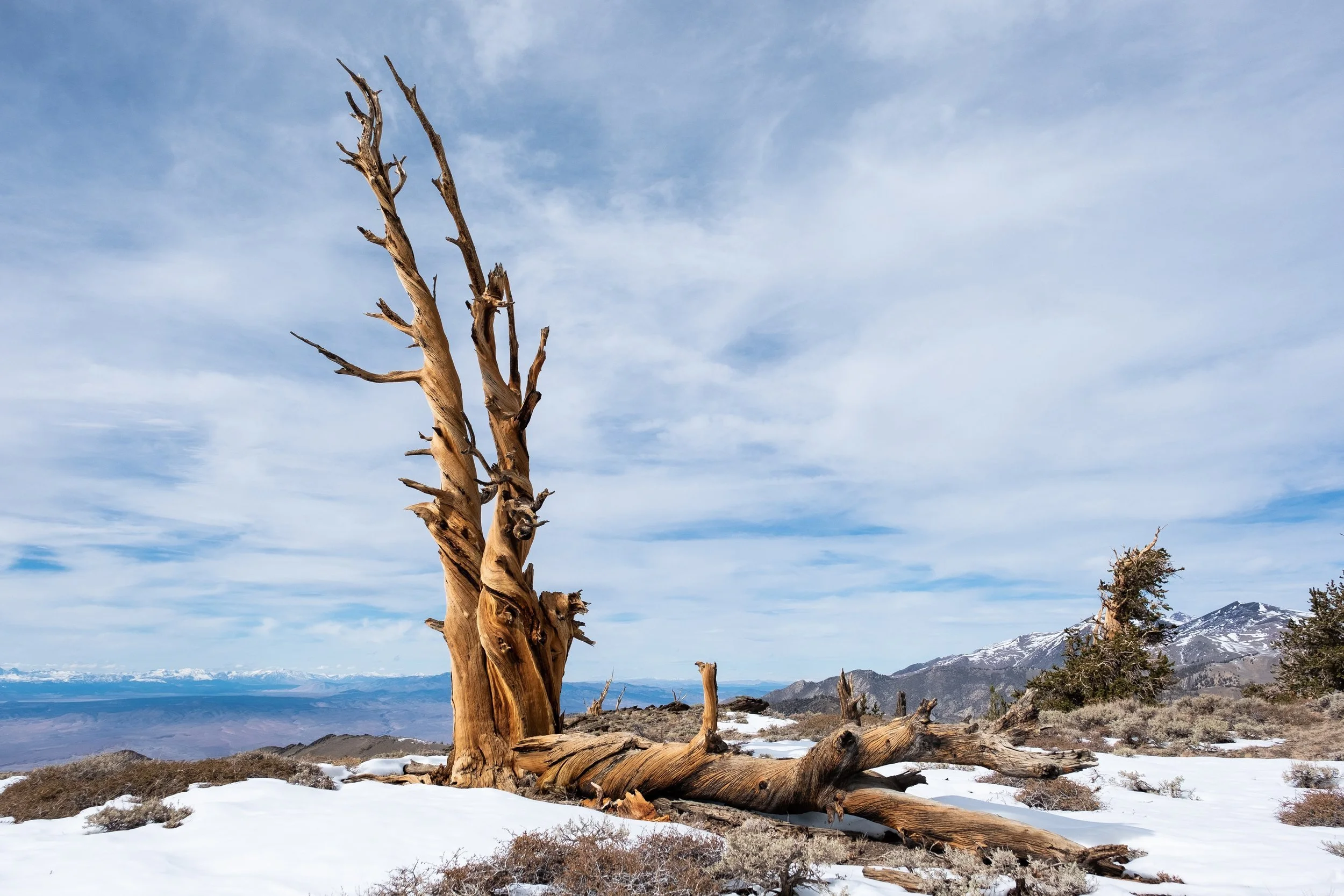011. LONGEVITYWe might be losing an important vocabulary of longevity and the lessons that longer arcs of time can teach us.
The Bristlecone Pine is a 4800 year old tree. It is the oldest living individual organism. How a living thing grows, withstands, recovers, and generally experiences nearly 5000 years of life is something beyond me.
I've been especially curious about longevity recently - mostly because I realized that I lack a rich vocabulary for describing longer arcs of time. Seasons, cycles, patience, ferment, dwelling, and perseverance are a few words that come to mind.
But I don't think I'm alone in my shortage. I think we might be losing an important vocabulary of longevity and the lessons that longer arcs of time can teach us.
What Makes a Good Life? Revelatory Learnings from Harvard's 75-Year Study of Human Happiness, Marginalia:
EXCERPT: Beginning in 1938 as a counterpoint to the disease model of medicine, the ongoing research set out to illuminate the conditions that enhance wellbeing by following the lives of 268 healthy sophomores from the Harvard classes between 1939 and 1944. It was a project revolutionary in both ambition and impact, nothing like it done before or since.
From Wind, Sand, and Stars: "Old friends cannot be created out of hand. Nothing can match the treasure of common memories, of trials endured together, of quarrels and reconciliations and generous emotions. It is idle, having planted an acorn in the morning, to expect that afternoon to sit in the shade of the oak."
From A Native Hill: "Nature has a patient ear. To her the slowest funeral march sounds like a jig. She is satisfied to have the notes drawn out to the lengths of days or weeks or months. Small variations are acceptable to her, modulations as leisurely as the opening of a flower."

